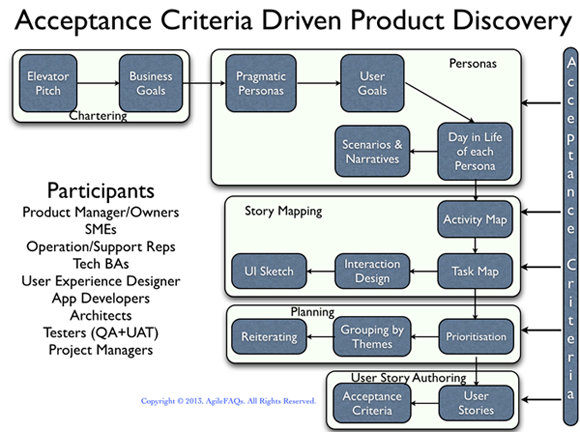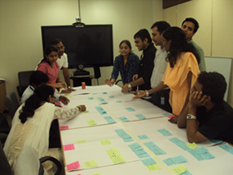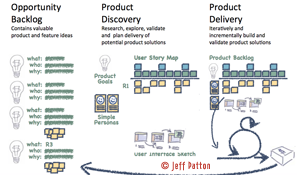Many product companies struggle with a big challenge: how to identify a Minimal Viable Product that will let them quickly validate their product hypothesis? Teams that share the product vision and agree on priorities for features are able to move faster and more effectively. During this hands-on workshop, we'll take your real product and coach you on how to effectively come up with an evolutionary roadmap for your product. This week long workshop teaches you how to collaborate on the vision of the product and create a Product Backlog, a User Story map and a pragmatic Release Plan.



Focused Break-Out Sessions, Group Activities, Interactive Dialogues, Presentations, Heated Debates/Discussions and Some Fun Games
Knowledge: 40%, Skill-Building: 60%
In the past, this workshop has been most successful if the following roles are present all 5 days:
Ideally the number of participants for this workshop is 10-12 people.

Intermediate to Advanced
"I come away from the Product Discovery Workshop having learned a great deal about the process and equally about many strategies and nuances of facilitating it. Invaluable!
Naresh clearly has extensive experience with the Product Discovery Workshop. He conveys the principles and practices underlying the process very well, with examples from past experience and application to the actual project addressed in the workshop. Naresh's ability to quickly relate to the project and team members, and to focus on the specific details for the decomposition of this project at the various levels (goals/roles, activities, tasks), is remarkable and a good example for those learning to facilitate the workshop. Key take-aways for me include the technique of acceptance criteria driven decomposition or mapping, and the point that it is useful to map existing software to provide a baseline framework for future additions."
No 20, 12th Cross
Bengaluru, KA
560002 IN